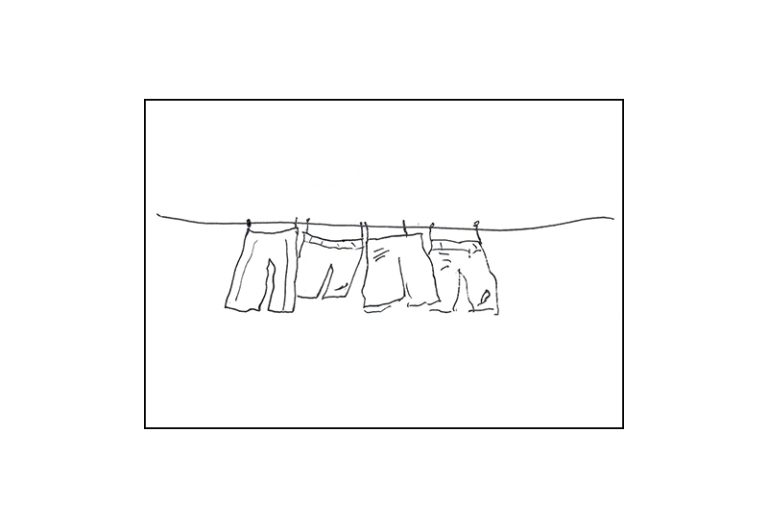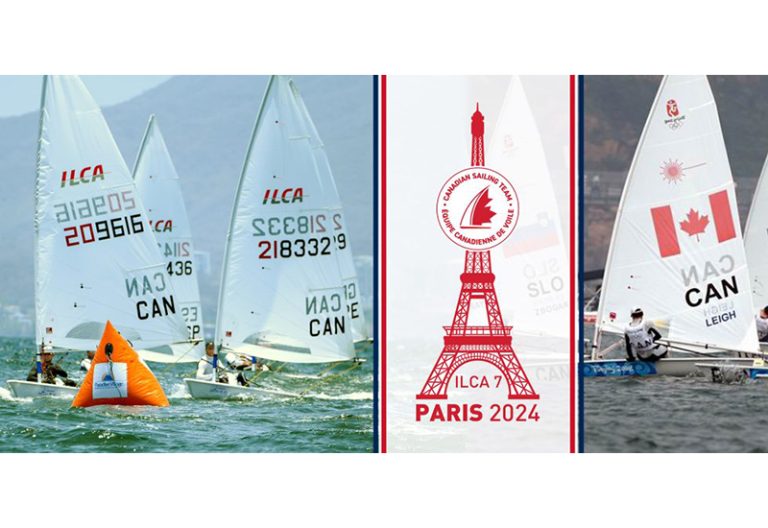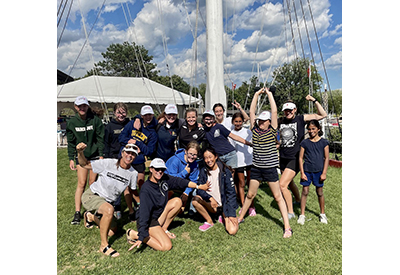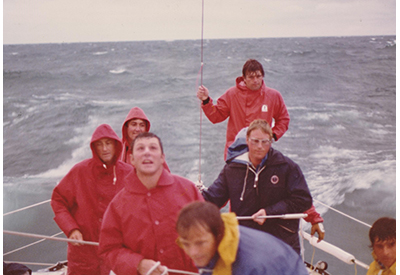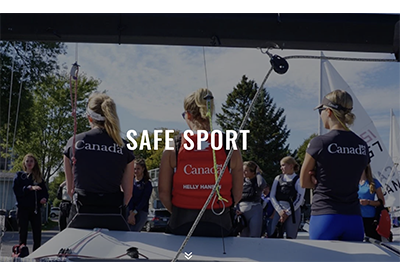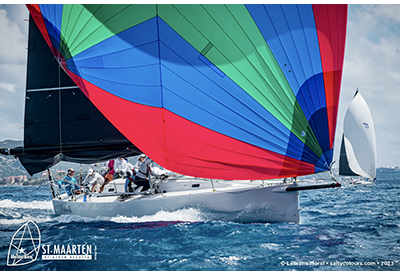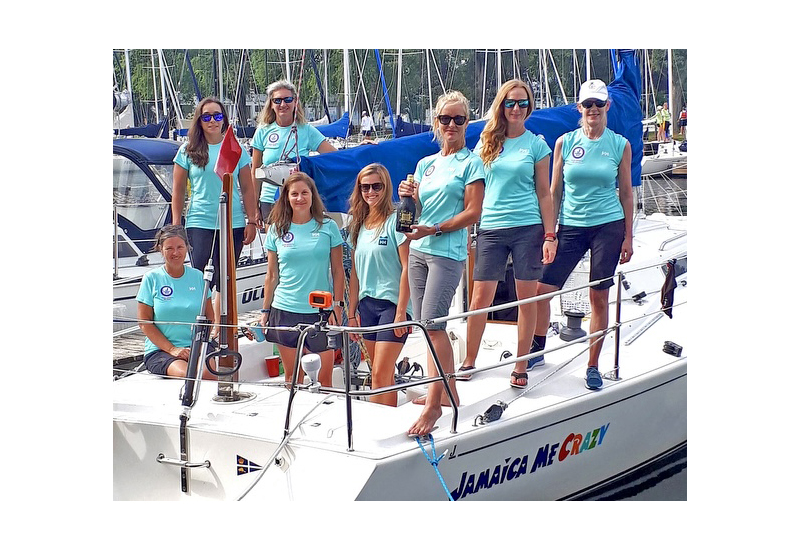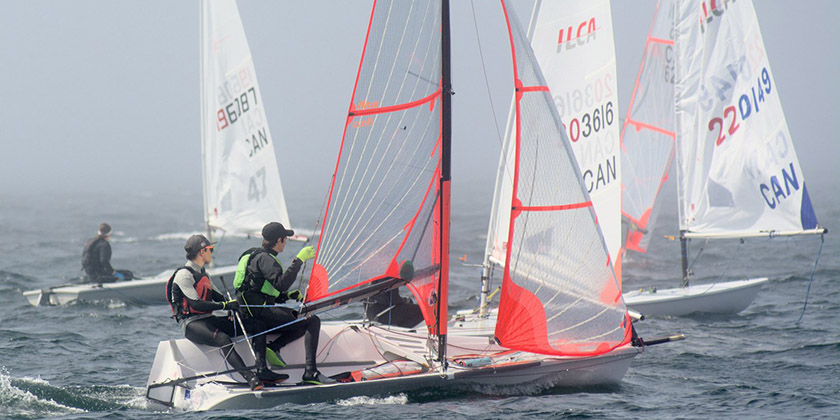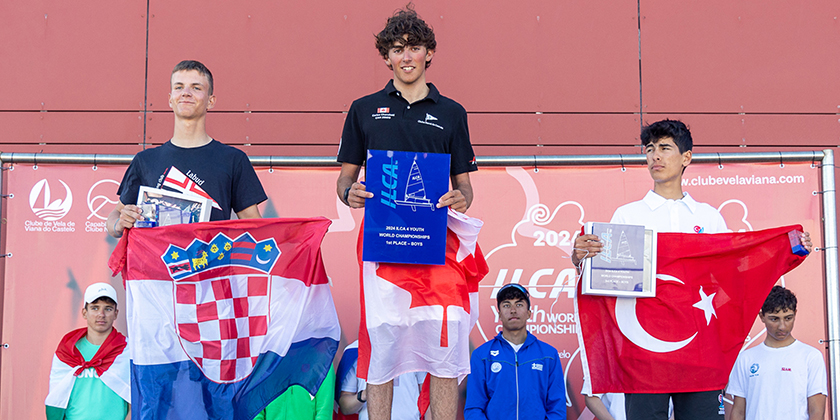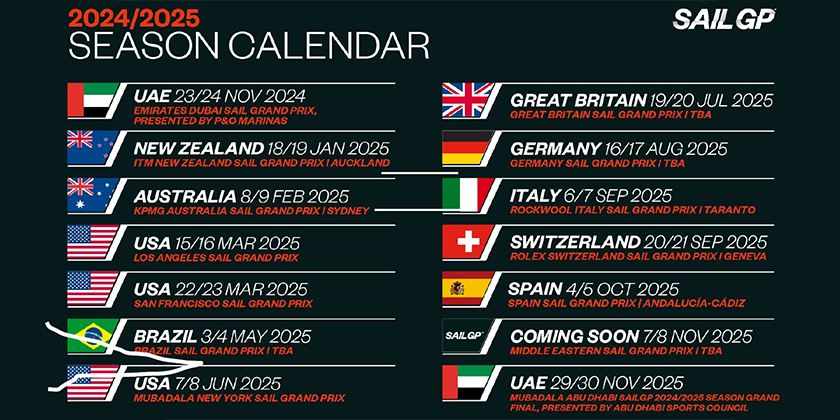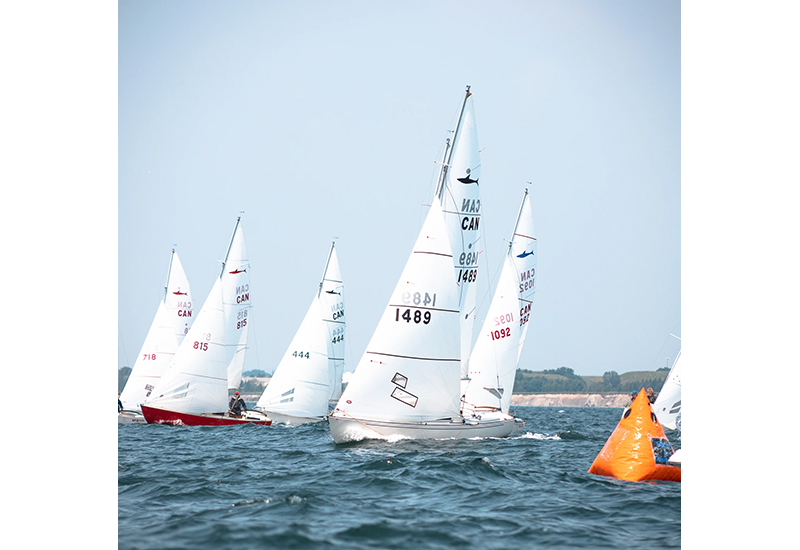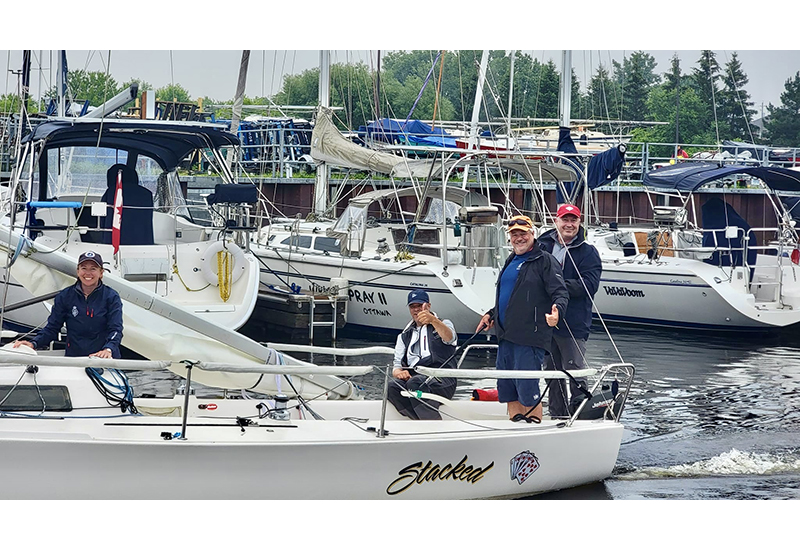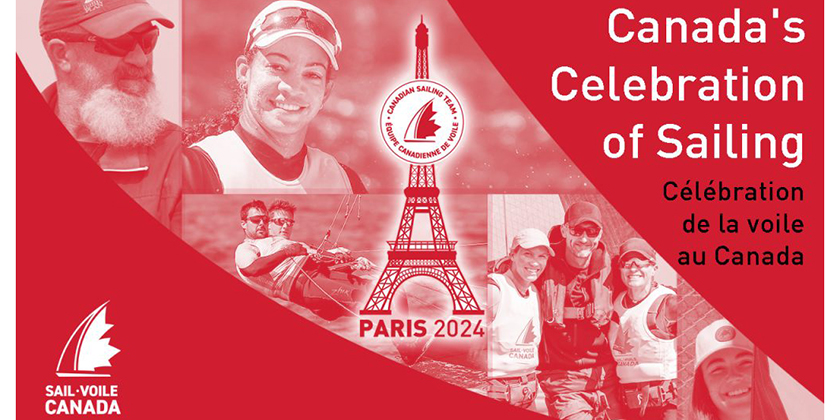High Performance Olympic Clinic at Royal Victoria Yacht Club
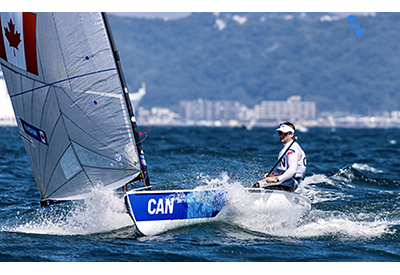
Jan 19, 2022
By Mark Lammens
Sail Canada recently hosted a High Performance retreat at the Royal Victoria Yacht Club. HP Director Mike Milner and HP Manager Katie Sweeting organized the Tokyo 2021 debrief with a packed agenda and to set the goals and tone for the Olympic Games in Paris 2024. In attendance were the top Coaches from Nova Scotia, Quebec, Ontario, Manitoba, Saskatchewan, BC, RCYC, RVicYC and RVanYC. Also attending were the Executive Directors from Sail Canada and BC Sailing, Ontario Sailing’s High Performance Director and representatives from Sport Canada’s Own the Podium.
In the first session, HP Director Milner said the Canadian Sailing Team goals will be very high, qualifying for the Olympics in six classes, qualifying for the medal race in four classes and winning medals in two. Ambitious goals requiring driven and gifted athletes, top coaches, good planning and utilizing the best sport science experts.
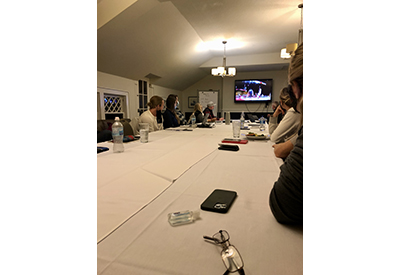 The relationship with the Training Centres will continue to be critical in athlete development for 2024. Nova Scotia has been the model for sailing specific sport science, athlete and coach integration. Ontario and BC training centres will also be critical to the physical and mental preparation in each identified male and female sailor.
The relationship with the Training Centres will continue to be critical in athlete development for 2024. Nova Scotia has been the model for sailing specific sport science, athlete and coach integration. Ontario and BC training centres will also be critical to the physical and mental preparation in each identified male and female sailor.
Other Action Items include embracing the new technologies to measure the required performance variables. Included is what to measure, how to measure it and how to use it: tracking, GPS, microphones, cameras, etc. If you cannot measure it you cannot change it and the tech needs to be useful and simple. These are Absolute and Relative numbers, sailing fast is good, sailing faster, on the shift with less manoeuvres and shorter course is usually best.
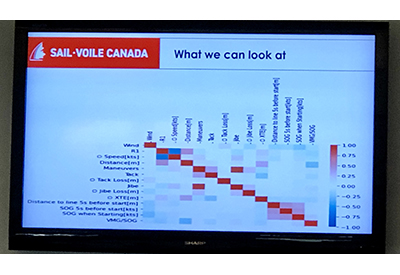 Mike arranged to have the high performance directors from the US, Australia, Norway and Ireland on a zoom presentation discussing the takeaways from Tokyo and Team preparation. The 2021 Games required adapting to the realities of Covid, which highlighted the need, and benefit of sailing at home; domestic targeted training. Equipment and athlete travel logistics and mimicking Olympic fleet quality was a challenge. At the Games logistics around “Games reality” such as bus travel, athlete village activity and other very strict Olympic pandemic actions was disruptive to some.
Mike arranged to have the high performance directors from the US, Australia, Norway and Ireland on a zoom presentation discussing the takeaways from Tokyo and Team preparation. The 2021 Games required adapting to the realities of Covid, which highlighted the need, and benefit of sailing at home; domestic targeted training. Equipment and athlete travel logistics and mimicking Olympic fleet quality was a challenge. At the Games logistics around “Games reality” such as bus travel, athlete village activity and other very strict Olympic pandemic actions was disruptive to some.
One interesting comment from the Foreign HP Directors was about the Optimist. Although it is an excellent first contact boat with transferable skills athletes could be burned out or uncoachable. Another comment was that 16-year-olds do not know how good they can be. Regarding coaching and improvement, the challenge is trying to create an environment where athletes can clearly observe and remember critical parts of a sailboat race. Reflective learning with video, mature discussion and journaling to address areas of improvement.
Ross MacDonald, World Champion and two-time Olympic medalist was invited to speak on important Olympic coach qualities. His experience is very good class specific knowledge is a given, but the softer skills are critical. An affective coach is also a good listener, available to receive information, not always transmitting, being able to talk performance issues through. Also being a good facilitator to assist with securing quality international training partners and good relationships with other teams. Additional assets include paying attention to the activities on the water for a race day plan and debrief, a good statistician and awareness with whatever issue comes up. Clarity in roles, measurement knowledge, rule skills similar to a good lawyer are also helpful.
2016 Olympic rep Erin Rufuse discussed the modern coaching approach of a collaborative coaching. Erin is working towards her Masters in Counselling Psychology. The collective improvement and performance mantra is being clear, respectful and sympathetic to the different roles, needs and learning styles of the group. The coach modelling non-threatening dialogue.
Other issues discussed include the challenge of ‘athlete ownership’, navigating coaches (and clubs) being recognized by the performance of their athletes. Athlete centred training requires a true assessment of the needs to reach the next level or access to services provided at the club level. Own the Podium made a few great comments, including recognizing all the coaches and contributors when you can. Other comments include ensuring the basics are solid, do not get lost in the weeds, small details, understand the elements and pathway to excellence and be aware of entry points/on ramp to excellence regarding keeping young quality athletes in the mix.
Another significant issue raised and continues to be is around athlete mental health, athletes struggling with difficulties around performance, qualifications, relationships, finances, academics, plus others. Resources, publication of help lines and training can assist.
Finally Milner discussed the nuts and bolts of minimum requirements for the designated team athletes – 65 days of training camps and regattas in Florida in the winter and Spain and Germany in the spring. The plan is providing the top athletes with teachable moments in relationships, tools and expertise to race well at the next Olympic Games.
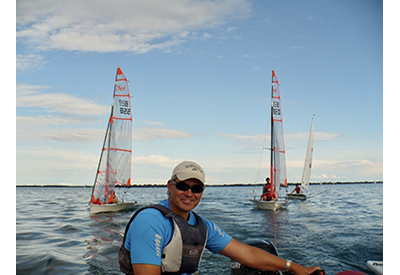 Mark Lammens
Mark Lammens
For the past 35 years, Mark has been involved in many aspects of the sport as an athlete in the Finn and Soling, as Canadian Team Coach at big games, but also on home waters, and of course as a volunteer and administrator.

